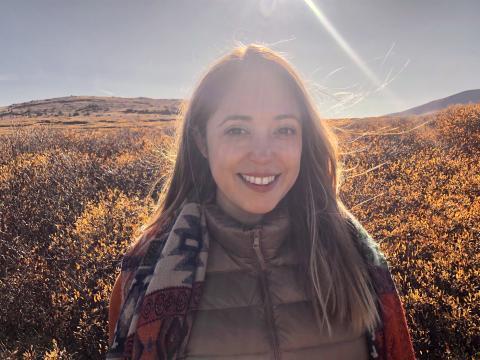Counseling Student Awarded $25,000 Grant

Vanessa Diaz, a student in the MA in Counseling program has earned an Advanced Practice Healthcare Scholarship Program (APHSP) grant worth $25,000.
The award is offered by the California Department of Health Care Access and Information and is intended to increase “the number of appropriately trained healthcare professionals providing direct patient care in a qualified facility in California.”
Diaz will utilize the grant now but is already thinking long-term. “This grant will allow me the financial room to use my resources to pursue specialized training such as certifications in couple's and family counseling or trauma or somatic modalities so that I can specialize in the field and eventually open my own practice,” she said.
Diaz has been interested in human behavior since she was very young, but initially thought she would “channel that curiosity into policy, studying Peace and Conflict Studies and then completing a master’s degree in human Rights.” A series of personal challenges led her to seek support from a therapist, which, in turn, led her “to appreciate that I had both the passion for and the abilities to be a great counselor.”
“I chose PAU because it allows me the flexibility to take classes from home but at the same time it's designed as a cohort model where I can share space with my same cohort throughout the program,” she said. “This would allow me to still build relationships with peers, which, as a people person, is very important! Also, as an academic at heart, I was impressed with the caliber of research being done at PAU by its faculty.”
Grantees must provide 12 months of full-time service in “direct patient care at a qualified facility in an eligible profession within six months of graduation.”
“After graduation I would like to work with local families and couples, hopefully at an agency here in Oakland or in Alameda County,” Diaz said. “Eventually, I would love to open my own private practice, specializing in working with intercultural and BIPOC couples and families, a population that is not adequately served in my community both because of a shortage of BIPOC counselors and also a lack of training or reticence in addressing how power and privilege play out in our most intimate relationships.”


